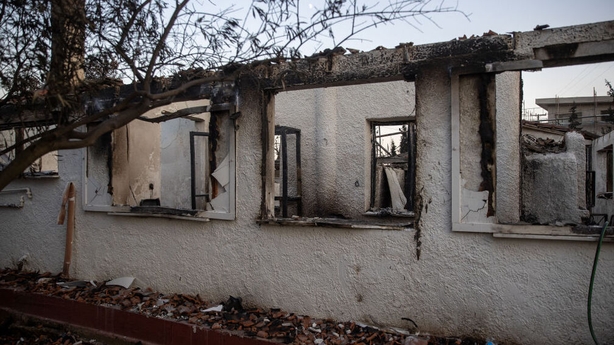Investigators suspect that a faulty power cable may have caused Greece's worst wildfire this year in which one woman died and 10,000 hectares near Athens was burned.
The blaze began on Sunday in a forest near Varnavas, a town 35km from the capital, and spread into the city's northern suburbs within a day.
Authorities have questioned residents of Varnavas as part of their investigation into what caused the fire.
A 76-year old man said a wooden electricity pillar outside his home, which had a loose cable fastened to it with a hanger, could have triggered the blaze, officials said.
This scenario is the leading one in the investigation, which should be concluded over the coming months, an official with knowledge of the inquiry said. Arson is also being considered.
A fire brigade official said that an area close to the electricity pole had been determined as the starting point of the blaze.
A prosecutor has deployed engineers to look into the cause.
Greece's power network operator HEDNO said it had found no evidence of a malfunction.
"We have no indication that anything wrong such as a short-circuit happened," an official said, adding that only the relevant authorities were responsible for determining the fire's cause.
Local media cited residents who had heard explosions before the blaze broke out. Others said there were initially two fires.
Milder winds have calmed the blaze which covered a distance of 40km before reaching the Athens' suburbs of Penteli and Vrilissia, where one woman was killed.
Still, flare-ups are possible, officials warned, as winds are expected to pick up again.

The fast moving blaze broke out amid a week-long high fire risk alert due to high temperatures and gale force winds.
Greece had its warmest winter on record this year and is on track for its hottest summer with little rain in many areas, a recipe for disasters, according to firefighters.
Wildfires have been a common feature of Greek summers for years, with many attributed to voluntary or involuntary arson, short-circuits or natural causes.
The country registered more than 8,000 forest fires in 2023.
In recent years, the risk of such blazes has been raised by climate change, which has brought hotter weather and less rain.

